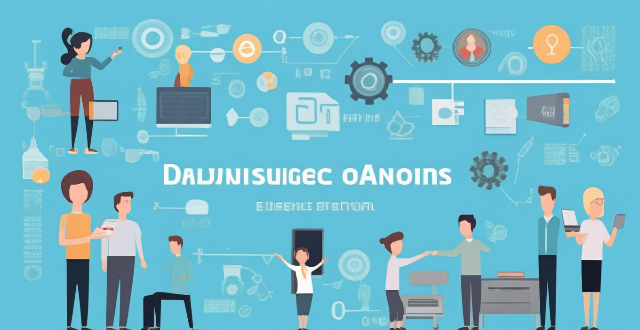The text discusses the challenges in constructing a knowledge framework and provides solutions to these challenges. The challenges include identifying relevant information, structuring the framework, technical limitations, human factors, and maintenance and updates. The solutions suggested are using reliable sources, implementing filtering techniques, consulting with experts, using an iterative approach, visual mapping, modular design, custom development, flexible design, peer review, user testing, feedback loops, automated systems, dedicated teams, and regular reviews. By anticipating potential challenges and implementing appropriate solutions, you can create a robust and effective knowledge framework that supports learning, decision-making, and innovation within your domain.

Challenges in Constructing a Knowledge Framework
When embarking on the construction of a knowledge framework, one might encounter numerous challenges that could impede progress or undermine the effectiveness of the framework. These challenges are often multifaceted and can stem from various aspects such as organizational structure, information overload, technical limitations, and human factors. Below, we delve into some of these challenges and discuss strategies to overcome them.
1. Identifying Relevant Information
Challenge:
- Information Overload: With the vast amount of data available, identifying what is relevant and accurate can be overwhelming.
- Quality Assurance: Ensuring the credibility and reliability of the sources used in the framework.
Solutions:
- Use Reliable Sources: Stick to reputable databases, journals, and official reports.
- Filtering Techniques: Implement filtering mechanisms to sort through information based on predefined criteria such as relevance, date, and source credibility.
- Expert Validation: Consult with experts in the field to validate the information gathered.
2. Structuring the Framework
Challenge:
- Complexity: The complexity of the subject matter can make it difficult to organize information logically.
- Interconnections: Capturing the interrelationships between different pieces of knowledge can be challenging.
Solutions:
- Iterative Approach: Start with a basic structure and refine it as more information is processed.
- Visual Mapping: Use tools like mind maps or concept maps to visualize relationships between concepts.
- Modular Design: Break down the framework into smaller, manageable modules that can be developed individually.
3. Technical Limitations
Challenge:
- Software Constraints: Not all software tools may support the level of complexity or specific features needed for the framework.
- Scalability: Ensuring that the framework can expand or contract as needed without losing integrity.
Solutions:
- Custom Development: If off-the-shelf solutions are inadequate, consider developing a custom tool or system.
- Flexible Design: Implement a design that allows for expansion and modification over time.
4. Human Factors
Challenge:
- Bias: Personal biases can influence what information is included and how it is presented.
- Comprehension: Ensuring that the framework is understandable and usable by its intended audience.
Solutions:
- Peer Review: Have colleagues review the framework to identify any biases or gaps in logic.
- User Testing: Test the framework with a sample of the intended users to ensure comprehension and utility.
- Feedback Loops: Create mechanisms for continuous feedback from users to inform updates and improvements.
5. Maintenance and Updates
Challenge:
- Changing Information: New discoveries and changes in the field require regular updates to the framework.
- Resource Allocation: Allocating sufficient resources for ongoing maintenance and updates.
Solutions:
- Automated Systems: Implement automated systems for updating certain types of information if possible.
- Dedicated Team: Assign a team responsible for the ongoing maintenance and development of the knowledge framework.
- Regular Reviews: Schedule regular reviews to assess the current state of the framework and plan necessary updates.
In conclusion, constructing a knowledge framework is a dynamic process that requires careful planning, strategic thinking, and continuous improvement. By anticipating potential challenges and implementing appropriate solutions, you can create a robust and effective knowledge framework that supports learning, decision-making, and innovation within your domain.